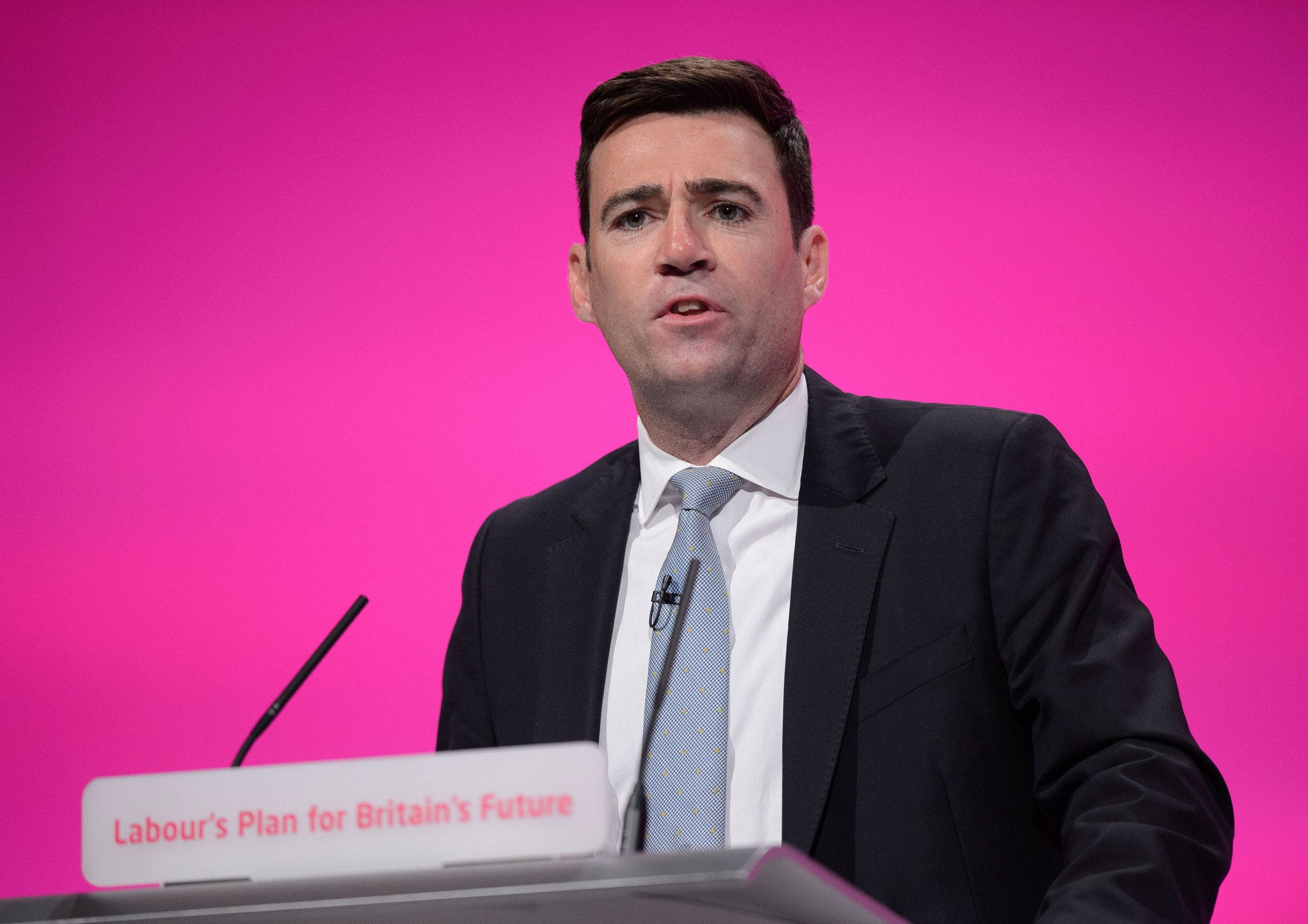Andy Burnham: Upfront fees for workers who go to employment tribunals should be scrapped
The fees of up to £1,200 were introduced in 2013 after business complained about frivolous claims

Upfront fees paid by workers who take cases to employment tribunals should be scrapped, Andy Burnham, the front-runner in the Labour leadership race will say.
In a controversial move, the Coalition Government introduced charges of up to £1,200 in 2013 after business complained about frivolous claims. But The Independent revealed in April that the total number of claims at employment tribunals slumped by almost 70 per cent – down from 340,000 in the first three months of the 2013-14 financial year to just over 110,000 in the third quarter of 2014-15. Sex discrimination claims fell by 82 per cent from 21,000 to 3,500, while the number of equal pay cases dropped by 72 per cent from almost 27,000 to 7,500.
Speaking to trade union members and Labour activists, Mr Burnham will accuse David Cameron of deterring workers from bringing valid cases. He will announce that Sir Keir Starmer, the former Director of Public Prosecutions who is now a Labour MP, will draw up proposals to replace the current fees system. His review team will include representatives from business and unions. Its brief will be to ensure workers get justice, control costs to taxpayers and allow employers to benefit from the quicker resolution of disputes.

Mr Burnham, the shadow Home Secretary, will say: “David Cameron is presiding over a damaging casualisation of the British workforce. Record numbers are on zero hours contracts, unsure whether they will get enough hours to make ends meet. Now, to add insult to injury, workers with genuine grievances are denied access to justice because of their ability to pay.” He will argue that such access is “a basic human right.”
The fees mean that claimants pay £160 to start a claim and £230 for a basic tribunal hearing, up to a ceiling of £1,200. Workers claiming unfair dismissal or discrimination pay an initial £250 followed by £950 for a hearing.
Vince Cable, who was the Liberal Democrat Business Secretary in the Coalition, told The Independent in April that there was enough evidence to show the fees were “a very bad move and should be reversed.” He accused the Conservatives of trying to “chisel away” at workers’ rights.

On 30 June, Liz Kendall, another Labour leadership candidate, will pledge to scrap the Government’s Work Programme for the jobless as a “failed experiment in welfare privatisation” and call for welfare-to-work schemes to be devolved to cities. She will say: "Our great cities should not have to wait for Westminster to address housing shortages or fill skills gaps. They shouldn’t be stuck with national programmes, like the Work Programme, when they can do better themselves. And they shouldn’t have to look to central government for almost all of their funding.”
Join our commenting forum
Join thought-provoking conversations, follow other Independent readers and see their replies
Comments
Bookmark popover
Removed from bookmarks